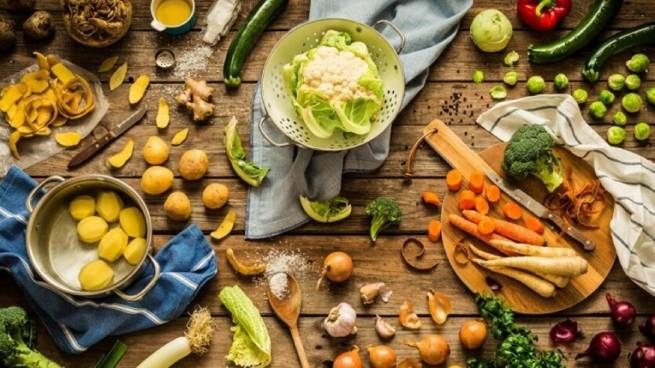Food restrictions are not at all the main essence of Lent, but it is the rejection of the usual menu that is most difficult for the body, especially due to protein deficiency. How to adapt to a new diet?
Available and prohibited products
Under complete ban during the entire Great Lent fall:
- Meat.
- Dairy products, including butter and cheese.
- Eggs.
- Alcohol (sometimes a small amount of wine is allowed).
- Goods and pastries.
The lenten menu is dominated by products of plant origin. A partial ban, that is, consumption only on certain days, is established for fish and vegetable oil. What can eat in post:
- Rye bread.
- Cereals (buckwheat, barley, barley, rice, semolina).
- Vegetables and greens (potatoes, onions, carrots, cabbage, eggplants and others).
- Fruits.
- Nuts and dried fruits.
- Mushrooms.
- Legumes (peas, lentils, beans, chickpeas).
- Lenten sweets: crackers, dryers, marshmallows, dark chocolate, honey.
Depending on the week and day of fasting, the list of allowed foods varies. Sometimes the Orthodox are encouraged to starve, and sometimes some red wine is allowed.
Preparing for the post
It is better to start a partial exclusion of foods prohibited in fasting in advance, about two weeks in advance, in order to prepare the body and mitigate stress for it. Moreover, according to the canons, two weeks before Lent, you need to abstain from meat on Fridays and Wednesdays, and refuse it on Shrovetide week.
During the preparatory period, increase the amount of complex carbohydrates, start breakfast with cereal, snack on fruit. Stock up on protein, for this reason, during the preparatory period, doctors do not recommend excluding fish and eggs – 1 egg and 200 grams of fish per day is enough. Drink more kefir, eat fermented milk products, reduce portions – fasting requires not only the rejection of specific foods, but also a reduction in its quantity.
How to fast:
Fasting without harm to health – think over the menu
Not everyone keeps the post to the end because of the monotony of the menu. Think in advance what you will cook, and try to eat more varied – this way you can avoid deficiency of vitamins and macronutrients. Don’t ignore the foods you don’t eat in your daily life and consider lean meal recipes. From beans or lentils, for example, you can make soup, side dish, pate and salad.
And in the post you can come up with and evaluate the most unusual combinations of products: sweet potato puree, pea sausage and even dumplings with pumpkin. Basically, fantasize. But before starting a fast, do not forget to consult your doctor. And most importantly, remember: the point of fasting is not to limit food, but to consciously refuse everything secondary in order to understand what is really important in life.
Lenten Recipes:







More Stories
Where will Greeks go for Easter: the best domestic and foreign destinations
Fine 1200 euros for the bad habit of Greeks at Easter, who is at risk
UK: human trial of melanoma vaccine started